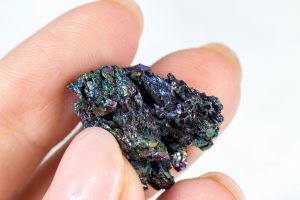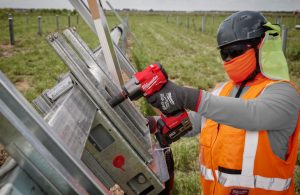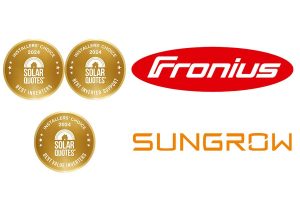Ascent Solar Technologies to Fly Space Solar Modules on NASA’s Upcoming LISA-T Mission

The mission, led by NASA’s Space Technology Mission Directorate and the agency’s Marshall Space Flight Center in Huntsville, will demonstrate the capability to deploy large-area arrays on lightweight, low-cost and small spacecraft.
Ascent Solar Technologies, (Nasdaq: ASTI) (“Ascent” or the “Company”), the leading U.S. innovator in the design and manufacture of featherweight, flexible, and durable CIGS thin-film photovoltaic (PV) solutions, announced today that the Company’s solar module products will fly on NASA’s upcoming Lightweight Integrated Solar Array and AnTenna (LISA-T) mission, scheduled for launch this summer. The mission, led by NASA’s Space Technology Mission Directorate and the agency’s Marshall Space Flight Center in Huntsville, will demonstrate the capability to deploy large-area arrays on lightweight, low-cost and small spacecraft.
LISA-T is the fourth mission in NASA’s Pathfinder Technology Demonstrator (PTD) series of missions evaluating novel, small spacecraft capabilities on orbit. Managed by NASA’s Ames Research Center in Silicon Valley, these demonstration missions facilitate the direct infusion of new technologies into the agency’s future science and exploration missions. LISA-T (PTD-4)’s solar arrays are lower mass and stowed volume, and produce three times more power than alternative PV solutions traded within the system envelope. PTD-4’s deployable solar arrays are designed to scale larger than the mission’s CubeSat form factor with options capable of generating kilowatts of power to small spacecraft.
“Selection for this upcoming space mission is the culmination of years of Ascent’s work with NASA to optimize the PV modules that enabled LISA-T’s ambitious spacecraft mass and power budgets to close,” said Paul Warley, CEO of Ascent Solar Technologies. “This mission will demonstrate that previously unachievable spacecraft requirements can in fact be met. It also provides a shining example of the benefits of public-private partnerships that leverage new and innovative commercial technologies, as NASA programs like MISSE & PTD lead the way for even more capable spacecraft for government and commercial space missions. The modules developed for LISA-T informed the design of Ascent’s Titan line of space products, facilitating further maximization of power generation to the extent that spacecraft can produce kilowatts per kilogram of array in the space environment with minimal degradation over the life of the mission.”
Leading up to this spacecraft demonstration, Ascent’s PV products were previously evaluated on the International Space Station. Modules tested on NASA’s MISSE-X experiment validated the resilience of the company’s CIGS material in the space environment, both bare and encapsulated. Additional Ascent modules with lower-cost and lighter-weight laminates are being evaluated on the upcoming MISSE payload slated to fly on SpaceX’s 30th Commercial Resupply Mission to the space station scheduled for March.
ABOUT ASCENT SOLAR TECHNOLOGIES, INC.
Backed by 40 years of R&D, 15 years of manufacturing experience, numerous awards, and a comprehensive IP and patent portfolio, Ascent Solar Technologies, Inc. is a leading provider of innovative, high-performance, flexible thin-film solar panels for use in environments where mass, performance, reliability, and resilience matter. Ascent’s photovoltaic (PV) modules have been deployed on space missions, multiple airborne vehicles, agrivoltaic installations, in industrial/commercial construction as well as an extensive range of consumer goods, revolutionizing the use cases and environments for solar power. Ascent Solar’s research and development center and 5-MW nameplate production facility is in Thornton, Colorado. To learn more, visit https://www.ascentsolar.com or follow the Company on LinkedIn and X (formerly Twitter).






